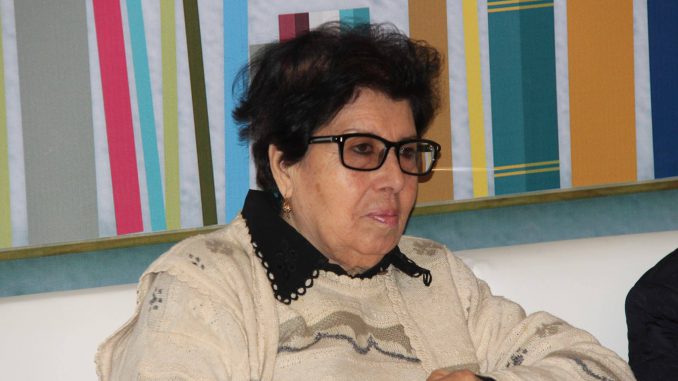
Khnata Bennouna is the first Moroccan woman to write, at a time when only men were taking over this activity. She is one of the first Moroccan women to challenge traditions and customs after refusing to marry at a very young age and after rebelling against her father’s wishes. She preferred to arm herself with knowledge to assert herself and take charge of her destiny. She is also the first woman to launch a women’s cultural magazine in Morocco, following the Rose El Youssef experience in Egypt. It was in the 1960s, and the magazine was called Chorouk, but it was short-lived.
She was also the first woman to write a novel. This was in 1969 and the preface is none other than the leader of the national movement Allal El Fassi, his spiritual father, who always told her: “You are ahead of your time by 100 years”. This novel was the first to win the first literary prize in Morocco, before it was enrolled in the secondary school curriculum. She has also written other novels and collections of short stories.
Her family initially opposed her liking for writing, to the point that her father denied that she was his daughter when asked about the articles she wrote in Moroccan newspapers and magazines, as she had stated in an interview with the weekly Al-Ayyam.
Khnata Bennouna was born in 1940 in the “Bab al-Khokha” district of Fez, into a family of resistance fighters against French colonialism. She was given her grandmother’s first name.
Known for her nationalism and strong attachment to her identity and Arabness, she described herself as saying: “I am a Moroccan palm tree from the land of this country. Thrown into the sky, I seek neither the shadow of Europe nor that of America, but I am inspired by human thought and creativity from wherever it emanates.”
Becoming a teacher, Khnata Bennouna was appointed in 1968 as principal of the “Ouallada” high school in Casablanca. She is known for her fight for great causes and its charitable commitment, which has spread beyond Morocco’s borders to various war and tension zones such as Somalia, Chechnya and Bosnia and Herzegovina.

Be the first to comment